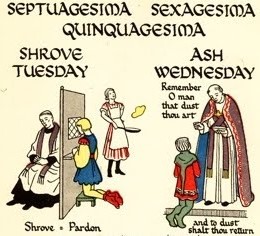A Roman Catholic Parish
The Personal Ordinariate of S. Peter
Eutaw Street and Madison Avenue
Baltimore, Maryland
Rev. Albert Scharbach, Pastor
Rev. Kirk, Celebrant
Andrew Johnson, Organist and Music Director
Quinquagesima
February14,, 2021
8:00 A.M. Said Mass
10:00 A.M. Sung Mass
This mass will be livestreamed.
______________
Organ Prelude and Postlude
Fairest Lord Jesus, arr. David Johnston
Agincourt Hymn, Dunstable
_______________
Anthems
Nearer my God, to Thee, arr. David Johnston
________
O Lord, increase my faith, Orlando Gibbons
O Lord, increase my faith, strengthen me and confirm me in thy true faith;
endue me with wisdom, charity, and patience in all my adversity.
Sweet Jesus, say Amen.
_______________
Hymns
Firmly I believe and truly (NASHOTAH) is adapted from John Henry Newman’s 1865 poem The Dream of Gerontius about the progress of a soul from death to salvation. As an Evangelical, Newman (1801—1890) rejected the doctrines of purgatory and the intercession of saints, but as part of his conversion (1845), he came to a realization of the fullness of the communion of saints: those striving on earth, those being purified by the divine fire, and those in heaven moved by love to pray for those on earth and in purgatory. The poem (Greek Geron: old man), relates the journey of a pious man’s soul from his deathbed to his judgment before God and settling into Purgatory. As the priests and assistants pray the prayers for the dying, Gerontius recites this creed and prays for mercy. Sanctus Fortis, Sanctus Deus is from the Good Friday liturgy and is alluded to in the line “him the holy, him the strong.”
Love divine, all loves excelling is by Charles Wesley (1707—1788). The hymn is a prayer: through the incarnate Christ, we pray for the indwelling of the Holy Spirit, and ask that we would never be separated from the love of God in Christ, who works in us and through us until our time on earth is done. One of the most loved Welsh tunes, HYFRODOL was composed by Rowland Hugh Prichard (1811—1887) in 1830 when he was only nineteen.
Immortal, Invisible, God only wise (ST. DENIO) by William Chalmers Smith (1824—1908), is a proclamation of the transcendence of God: “To the King of ages, immortal, invisible, the only God, be honor and glory for ever and ever” (1 Tim 17). No man has ever seen God, who dwells in inaccessible light that is darkness to mortal eyes. God lacks nothing (“nor wanting”) and never changes (“nor wasting”), and is undying, unlike mortals, who in a striking image “blossom and flourish like leaves on the tree, then wither and perish.” The original ending of the hymn completes the thought: “And so let Thy glory, almighty, impart, / Through Christ in His story, Thy Christ to the heart.” “No one has ever seen God; the only Son, who is in the bosom of the Father, He has made Him known” (John 1:18). Only in Jesus through the proclamation of the Gospel can we know the Father. John Roberts, in Welsh Ieuan Gwyllt (1822-1877), composed the tune ST. DENIO. It is derived from a Welsh folk song Can Mlynned i ‘nawr’ (“A Hundred Years from Now”).
